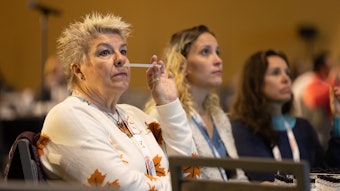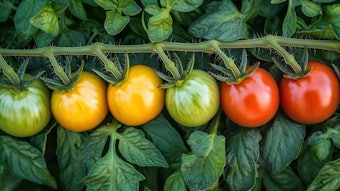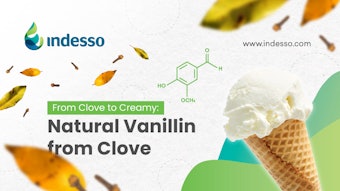A dire World Health Organization report on the subject of obesity warned, “Overweight and obesity represent a rapidly growing threat to the health of populations in an increasing number of countries. Indeed they are now so common that they are replacing more traditional problems such as undernutrition and infectious diseases as the most significant causes of ill-health.”
“We read every day about the link between high levels of sodium in the diet and cardiovascular disease and hypertension,” says Mark Zoller, chief scientific officer of Senomyx, a San Diego, California-based company that employs taste receptor-based assays and screening technologies to discover and develop novel flavors, flavor enhancers and taste modulators for the food, beverage and ingredients industries. The company’s clients in the arenas of savory, sweet, salt and cooling include Ajinomoto, Cadbury, Campbell Soup Company, The Coca-Cola Co., Firmenich SA, Nestlé SA and Solae. “Similarly, there is concern about high levels of calories and sugar in various foods [due to the world’s] growing obesity and diabetes trend,” Zoller adds. “Those are some of the key drivers we picked up on. We’re responding to an industry that is trying to do more in the health and wellness area.”
Senomyx’s background in the biology of taste took shape in the 1990s with a group of founding academics and entrepreneurs, including Charles Zuker, a professor of biology at the University of California, San Diego. “He was studying the biology of taste and had identified what appeared to be the novel receptors that he predicted were going to be involved in taste,” says Zoller, “but at the time he hadn’t discovered which receptor was responding to which taste.” In founding Senomyx, Zuker teamed with a range of researchers, including Lubert Stryer, professor of cell biology at Stanford University and recipient of a 2007 National Medal of Science; Roger Tsien, Nobel Prize-winning scientist and professor of pharmacology, chemistry and biochemistry at the University of California, San Diego (see sidebar); food chemistry expert and author of “The Curious Cook” Harold McGee, and Denis Baylor, professor emeritus of Neurobiology at Stanford University. (All remain on the company’s scientific advisory board.) “The thought was to use taste receptors to identify novel flavors,” says Zoller. “In the beginning, the idea was to work on both taste and smell, but it turned out that the biology of smell is about 100-times more complicated than that of taste. So the focus of the company soon settled down on taste.”










